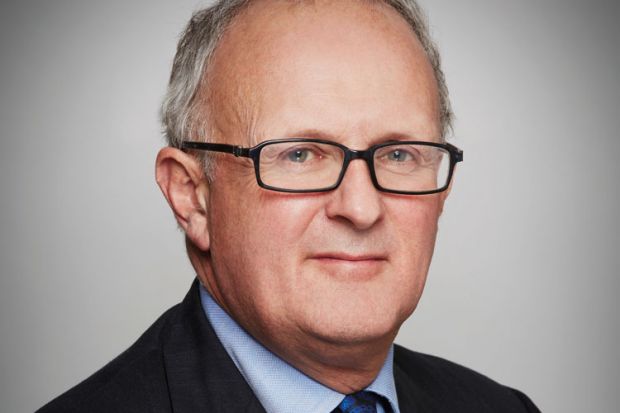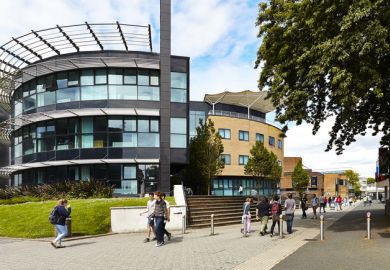John Bowers QC is a leading human rights and employment lawyer who also sits as a deputy High Court judge. He is an approved counsel for the Equality and Human Rights Commission, and has written numerous books on human rights and employment law, including standard texts on whistleblowing. On 1 October he will take up the post of principal of Brasenose College, Oxford.
Where and when were you born?
In 1956 in Cleethorpes, a seaside resort next to Grimsby in Lincolnshire
How has this shaped you?
Growing up in Cleethorpes made me optimistic, interested in people of all backgrounds and gave me a lifelong love of the sea
What were your immediate thoughts when you were made principal of Brasenose?
I was thrilled to be following in the footsteps of such giants as the great jurisprudence professor H. L. A. Hart. It took a little time for the news to reach me, however; I was conducting an inquiry at the time in Angelsey where there was only an intermittent telephone signal.
Do you think studying at Oxbridge remains a preserve for independent school students? If so, what should be done to counter that?
There are disproportionate numbers from public schools at Oxford compared with the general population, but the university is trying hard to address this and Brasenose has its own extensive outreach programme. Our schools officer visits schools with high indices of deprivation. I came from a state school and found Oxford quite daunting at first, so I am very keen on this area of our work.
In your legal work you have been described as having “a brain the size of a planet”. Will this help in the academic world, particularly at Oxford?
I am sure it was my mother who said this. She was echoing, no doubt, Douglas Adams, who wrote in The Hitchhiker's Guide to the Galaxy about Marvin the paranoid android, who had such a brain. One day I hope to write the definitive hitchhiker's guide to the British legal system.
You have written standard texts on whistleblowing. In academia, whistleblowing has often led to the destruction of careers. How do you feel about this and what protection should be given to academics who expose malpractice?
An institution can learn a lot from people who blow the whistle and should provide a supportive environment in which to do so and proper outlets for genuine concerns to be expressed. Of course, not everyone who does so is conveying accurate information and people do so for a range of motives. Each case must be considered on its own merits, but genuine whistleblowers should certainly be celebrated and not ostracised (as sometimes happens).
What advice would you give to your younger self?
Try new things; experiment; be yourself.
What were you like as an undergraduate?
A swot, or as they used to say, “a northern chemist”, despite not studying chemistry.
What’s your most memorable moment at university?
Well, apart from meeting my future wife Suzanne there, it was probably being required to sit in front of the chaplain and read aloud my exam scripts as no one could read my writing.
You are proud of all your alumni at Brasenose. Is it an honour to count the current prime minister as an alumnus?
It is indeed a privilege to have David Cameron as our second prime minister from Brasenose [the first was Henry Addington, who was prime minister from 1801 to 1804]. We can also count the former Australian PM John Gorton as an alumnus, and I am delighted to see that Malcolm Turnbull (also an alumnus) is the new Australian prime minister. There cannot be many colleges that can boast two Australian prime ministers. On current form, Brasenose generates a UK prime minister every 200 years – so we’ll have to see if the pattern repeats in 2310.
What keeps you awake at night?
As of now, police helicopters as we live in an edgy part of Islington, but as from October it will be exuberant students, no doubt discussing their essays outside the Brasenose lodgings in Radcliffe Square.
As a child, what did you want to do when you grew up?
To play left-half and captain for Grimsby Town Football Club, but I soon grew out of that.
What do you do for fun?
Cycle (badly); play tennis (badly); watch Grimsby Town FC (who generally play badly; they are in the fifth division of a league that really has only four).
What’s your biggest regret?
I regret that my mother, who sadly died last year, will not see me inaugurated as principal; she loved coming from Cleethorpes to visit me at Oxford when I was a student.
Tell us about someone you admire.
Nelson Mandela, Mo Farah, refugees who walk a hundred miles to freedom.
If you were a prospective university student facing £9,000 fees, would you apply or go straight into work?
I certainly would go to university; it made me a much more rounded person and gave me opportunities beyond those I ever could dream of in the Grimsby area.
If you were the universities minister for a day, what policy would you immediately introduce to the sector?
Ensure that university teaching is fully recognised. We have some brilliant teachers at Brasenose.
Do you think the BBC TV programme Silk is an accurate representation of the work and/or lives of members of Queen’s Counsel?
It got the camaraderie of a chambers right, but the sex stories are far-fetched (I think!).
Appointments
Julie Sanders has begun her role as pro vice-chancellor of the Faculty of Humanities and Social Sciences at Newcastle University on 1 September, having joined from the University of Nottingham Ningbo China. She has previously held positions at the University of Warwick and Keele University. “The HaSS faculty represents an impressive range of disciplines, all of which are contributing to the university’s focus on tackling societal challenges and purposeful public engagement in richly creative ways,” she said. “As someone who has always enjoyed thinking across disciplinary boundaries and working in teams, I am particularly excited to be part of this faculty’s future.”
The University of Greenwich has appointed Javier Bonet as deputy vice-chancellor, research and enterprise. Professor Bonet, who takes up his post in November, will lead Greenwich’s research and enterprise activities. He is currently director of the Welsh government’s Sêr Cymru National Research Network in Advanced Engineering and Materials and professor of computational engineering at Swansea University. “Greenwich has a great track record in award-winning research and an active programme of investment in research staff, PhD students and facilities,” Professor Bonet said.
Rob Aitken has joined York St John University as dean of the Faculty of Health and Life Sciences. Professor Aitken joins York St John from the University of Glasgow, where he was head of the School of Life Sciences.
Wilma Teviotdale, head of accountancy and finance at the University of Huddersfield, has been appointed to the learning and professional development board of the Institute of Chartered Accountants in England and Wales.
Joseph Silk, the new Gresham professor of astronomy at Gresham College, will deliver his first speech at the institution this week. Professor Silk will give his next lecture, “The First Stars”, on 4 November.
POSTSCRIPT:
Print headline: HE & me
Register to continue
Why register?
- Registration is free and only takes a moment
- Once registered, you can read 3 articles a month
- Sign up for our newsletter
Subscribe
Or subscribe for unlimited access to:
- Unlimited access to news, views, insights & reviews
- Digital editions
- Digital access to THE’s university and college rankings analysis
Already registered or a current subscriber?




